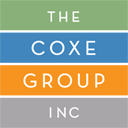It’s not about one solution. It’s about providing critical information to help you make the right decision for your firm.
A Compensation Plan Can Dramatically Improve a Firm’s Success
A large multi-discipline, multi-national engineering firm asked our assistance as the managers struggled with a compensation plan that had become increasingly de-motivating to the firm’s leading practitioners.
The firm had evolved over several decades from a small partnership to a large, complex organization that still maintained its legal structure as a partnership. A remnant of its early days, when the goal was to encourage retiring partners to keep their money in the firm, was a compensation component that allocated 75 percent of distributable profits to partners equity, including that of retired (but not divested) partners. This led to retired partners’ having a larger and larger percentage of the firm’s overall profit, with the newer, active partners collectively having minority ownership. The younger partners who were leading the firm and leading the work saw most of the profit they generated going to the retired partners’ capital accounts. The situation threatened to fragment the firm.
Another problem was a salary structure that encouraged moving into management roles rather than remaining as client and project oriented practitioners. While the shift made sense when first instituted to encourage moves by some into management roles, the pendulum had swung too far, with one member of the firm’s leadership group noting that the firm had made “mediocre managers out of good practitioners”.
A third problem was that bonuses were based primarily on current year profitability generated by market sector groups, which tended to discourage new initiatives that were likely to generate future profits.
We explored these issues in conversations with leaders, managers, and practitioners and then developed several compensation options based on various alternatives for salaries, performance bonuses, and return on ownership equity. We then met with the firm’s Compensation Group and helped them decide on a salary structure that recognized marketplace value, a bonus plan that encouraged both near-term profitability and investment in efforts that would lead to future profitability, and a shift in the components to performance bonus and return on equity.
The most noticeable result was a soaring of profitability from below 5 percent to over 16 percent in the first year that sustained for several years, even though the market entered a downturn and the firm expanded considerably.
Some observations:
- Compensation can indeed dramatically affect performance.
- Directing too much of the profits to benefit ownership at the expense of those active owners actually generating the profit is not a sustainable model.
- Even in a large firm, a key to sustained success is continuous focus on client satisfaction, project quality, efficient delivery, and profitability.
Deep industry expertise
The Coxe Group is not one or two consultants — but a group of 10-plus who together bring more than 300 years of experience in organization management, financial management, marketing, personnel management, and behavioral science. Many of us are registered professionals in the fields we serve. Some of us have carried responsibilities as principals and managers.
Our richness comes from our diversity. And our strength comes from our collaboration. With such a broad base, we can address collectively all the issues surrounding a firm’s goals, plans, structure, people, and finances. When you work with The Coxe Group, you have access to this entire resource.
Today’s increasingly complex organizations need to be skillfully led and managed to endure. We are proud to be in the forefront of those who have responded to these leadership and management needs and advanced the state of the art.




